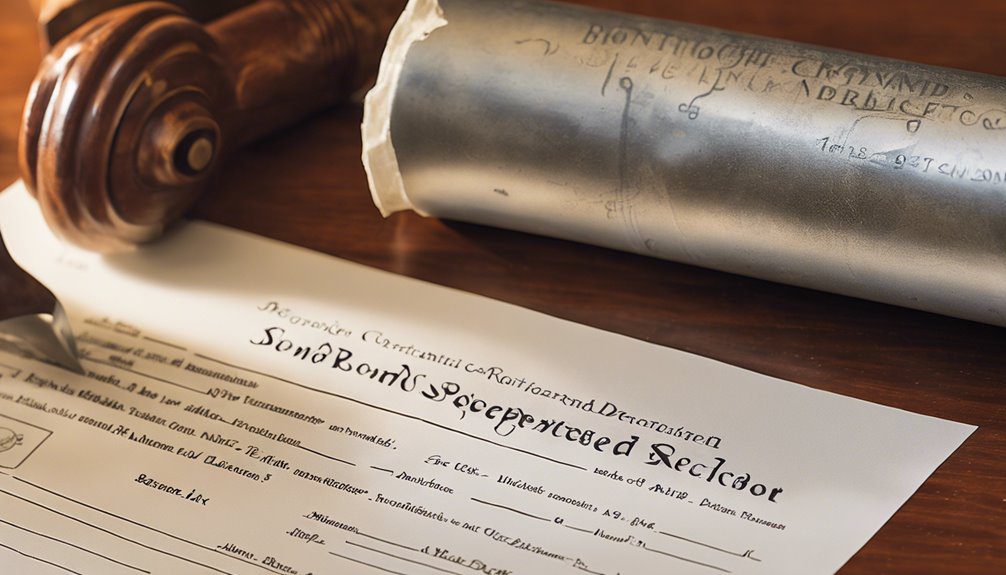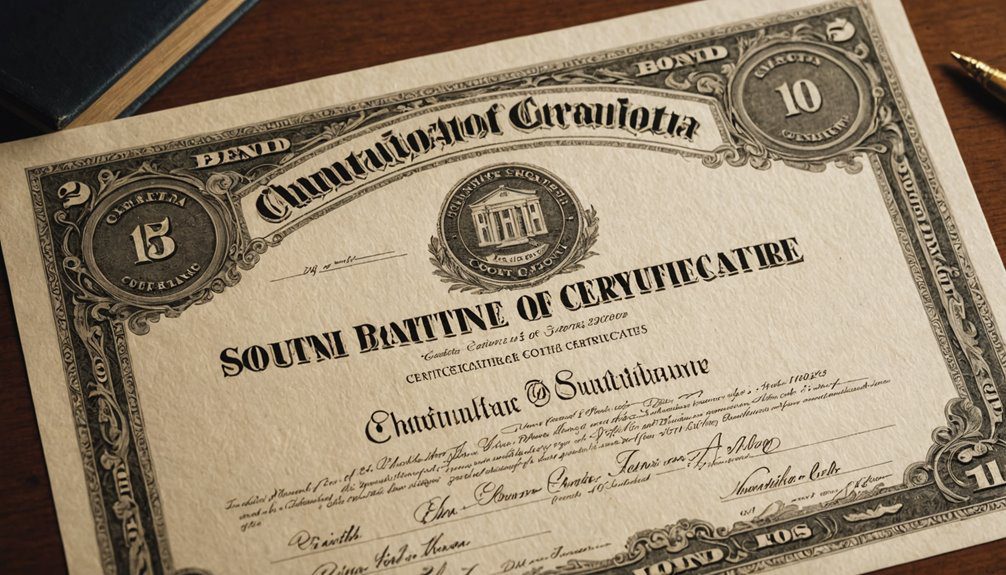If you're a contractor in South Carolina, understanding the Registered Residential Specialty Contractor Bond is essential for your business. This bond isn't just a formality; it plays a significant role in protecting both you and your clients. By ensuring that you meet your contractual obligations, it can enhance your reputation in a competitive market. But what happens if you skip this crucial step? The implications could impact your career and client relationships more than you might expect. Let's explore the details and see why this bond is more important than you think.
What Is a Contractor Bond?

A contractor bond is a type of surety bond that protects clients by ensuring that contractors fulfill their obligations according to the terms of their contracts. Essentially, it's a three-party agreement involving you, the contractor, and the surety company. If a contractor fails to meet their contractual duties, you, as the client, can file a claim against the bond.
This bond acts as a financial guarantee that the contractor will adhere to regulations, complete the project as agreed, and pay for any necessary permits or licenses. It's a safeguard for you, ensuring that your investment is protected.
When hiring a contractor, you should always check if they've a valid bond. Not only does it show their commitment to professional standards, but it also offers you peace of mind. If issues arise, you can seek compensation through the bond, which can cover damages up to a specified amount. Additionally, surety bonds are essential for various industries including construction and transportation.
Importance of the Specialty Contractor Bond
Understanding the importance of the specialty contractor bond can significantly impact your project's success. This bond acts as a safety net, ensuring that you're protected against potential financial losses due to contractor misconduct, negligence, or failure to comply with industry regulations. By securing this bond, you demonstrate professionalism and accountability, which can help build trust with clients and stakeholders.
Moreover, having a specialty contractor bond can enhance your reputation within the industry. It signals to potential clients that you take your responsibilities seriously and are financially responsible. This trust can lead to more business opportunities and a competitive edge in the market.
Additionally, many clients may require you to have this bond before hiring you. Without it, you could miss out on valuable projects.
The bond also serves as a form of assurance that you'll complete your work according to the agreed-upon terms, helping to foster smoother project execution. Furthermore, securing a bond can ensure compliance with local requirements set forth by municipalities, which is crucial for maintaining operational integrity.
Who Needs This Bond?

Determining whether you need a specialty contractor bond depends on your specific role in a construction project. If you're a residential specialty contractor in South Carolina, you'll likely need this bond to comply with state regulations. This bond acts as a protection for your clients, ensuring that you fulfill your contractual obligations and adhere to local laws.
You'll need the bond if you're involved in specialized trades like HVAC, plumbing, or electrical work. Even if you're a subcontractor, this bond is often required to prove your reliability and professionalism. Homeowners and general contractors may request it before hiring you, as it reassures them that you're financially responsible.
If you're planning to bid on projects or work on residential properties, having this bond in place can enhance your credibility. It shows potential clients that you're serious about your business and willing to meet the necessary legal requirements.
On the other hand, if you're not directly involved in construction or your role doesn't require it, you might be off the hook. Always check the specific regulations in your area to determine if you need this bond.
Application Process Overview
The application process for obtaining a South Carolina contractor bond typically involves three key steps: gathering necessary documentation, submitting your application, and paying the required fees.
First, you'll need to compile essential documents, including proof of your business license, financial statements, and any certifications relevant to your specialty. This paperwork verifies your qualifications and is crucial for a smooth application process.
Next, you'll submit your completed application to a bonding company or surety provider. Make sure to double-check that all forms are filled out accurately, as any mistakes could delay your approval.
You may also need to provide additional information or documentation if requested.
Bond Amount Requirements

Once you've submitted your application, you'll need to consider the bond amount requirements specific to your contractor license. In South Carolina, the bond amount for registered residential specialty contractors typically varies depending on the type of work you plan to perform.
Generally, the bond amount is set at $10,000, but this can differ based on local regulations or specific project scopes. It's crucial to check with your local licensing board to confirm the exact amount needed for your particular specialty.
This amount serves as a financial guarantee that you'll adhere to all laws and regulations governing your work. If you fail to meet these obligations, the bond can be claimed against, providing a layer of protection for your clients.
When determining your bond amount, consider your business needs and the potential risks involved in your projects. Securing the right bond not only helps you comply with state requirements but also establishes trust with your clients.
Make sure you work with a reputable surety bond provider to ensure you meet all necessary criteria and secure the correct bond amount for your contractor license. Additionally, understanding bond regulations in Louisiana can provide insights into the importance of compliance in your own state.
Duration of the Bond
When it comes to the duration of your contractor bond in South Carolina, it's essential to understand that these bonds typically remain active for one year. This one-year period means you need to keep track of the bond's expiration date to ensure you're compliant with state regulations.
As you approach the end of that year, you'll want to consider renewing the bond. Renewing it on time is crucial, as an expired bond may put your contractor license at risk and affect your ability to work legally.
To renew, you'll often need to go through a similar process as when you first obtained the bond, which may include paying a premium and potentially undergoing a review of your qualifications.
It's important to note that the bond duration can also be influenced by specific conditions set by the bonding company or any changes in your business status. Always clarify these details with your surety provider to avoid any surprises. Florida Surety Bonds are a key aspect of this process, ensuring compliance and protecting against financial loss.
Staying on top of your bond's duration not only helps you maintain your license but also builds trust with clients and ensures you're operating within the law.
Benefits for Contractors

Having a contractor bond in South Carolina offers numerous benefits that can significantly enhance your business operations. First and foremost, it boosts your credibility. When clients see you're bonded, they know you're serious about your work and committed to adhering to regulations. This trust can lead to more job opportunities and higher customer satisfaction.
Additionally, a contractor bond protects you from potential financial loss due to claims against your work. If a client files a complaint regarding your services, your bond can cover the costs, safeguarding your finances and reputation. This security allows you to focus on delivering quality services without the constant worry of unforeseen claims.
Moreover, having a contractor bond can provide a competitive edge. Many clients prefer working with bonded contractors, believing they'll receive better service and accountability. This preference can set you apart in a crowded market.
Lastly, being bonded can often lead to lower insurance premiums. Insurers view bonded contractors as lower risk, which might translate to savings on your overall insurance costs. Additionally, obtaining a bond ensures compliance with regulatory standards that can enhance your business's reputation and operational legitimacy.
Benefits for Homeowners
For homeowners, the advantages of working with a bonded contractor are significant and reassuring. When you hire a bonded contractor, you gain an added layer of protection. This bond ensures that the contractor adheres to local regulations and industry standards, giving you peace of mind about the quality of the work being done on your home.
If a contractor fails to meet these obligations or leaves the job unfinished, you can file a claim against their bond. This means you have a safety net to recover funds for any losses you might incur. It's a level of security that unbonded contractors simply can't offer.
Additionally, working with a bonded contractor often means you're dealing with a business that's committed to professionalism. Bonding is a signal that the contractor takes their trade seriously and values their reputation. This can lead to better communication, timeliness, and overall satisfaction with your project.
Ultimately, choosing a bonded contractor means you're making a smart investment in your home's value and your peace of mind. You can feel confident that your project is in capable, responsible hands, reducing stress throughout the renovation process. Moreover, having a contractor who is compliant with state regulations can further protect you from potential legal issues.
Common Misconceptions

Many homeowners hold misconceptions about contractor bonds that can lead to confusion or hesitation in hiring a bonded contractor. One common belief is that a bond guarantees the quality of work. In reality, a bond serves as a form of insurance, providing financial protection if the contractor fails to meet their obligations or complete the job. It doesn't assure you of the contractor's skill or reliability.
Another misconception is that all contractors are bonded. While many reputable contractors do obtain bonds, not all are required to. This means you should always verify a contractor's bond status before hiring them.
Some people also think that if a contractor is bonded, they're automatically trustworthy. While a bond can indicate a level of professionalism, it's still essential to research the contractor's reputation and past work.
Lastly, many believe bonds are only necessary for large projects. However, even smaller jobs can benefit from hiring a bonded contractor. Additionally, understanding the performance bond process can further enhance your confidence in selecting a qualified contractor.
Understanding these misconceptions can help you make informed decisions, ensuring you hire a contractor who meets your needs and protects your investment.
Conclusion
In summary, the South Carolina Registered Residential Specialty Contractor Bond is essential for protecting both contractors and homeowners. By ensuring compliance with regulations and contractual obligations, this bond boosts your credibility while safeguarding your clients' interests. Whether you're a contractor looking to enhance your reputation or a homeowner wanting peace of mind, understanding this bond's importance can make a significant difference. Don't underestimate the value it brings to your contracting journey!


